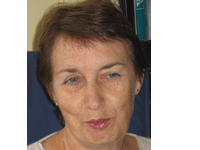
Independent social workers have been refusing to take family court cases since the Legal Services Commission (LSC) capped their fees, Community Care has learned.
Alison Paddle, an independent social worker (ISW) and former chair of Nagalro which represents guardians and ISWs, said the reduced fees – capped at £33 an hour in London and £30 outside the capital – made it “scarcely affordable” for them to provide expert advice in court.
“I’ve had double the number of requests I normally would from solicitors since the fees cap came into force on 9 May,” Paddle said. “They are really struggling to find ISWs willing to work at the new rates and it’s causing a lot of anxiety.”
District Judge Nicholas Crichton echoed Paddle’s concerns, saying that judges were also worried. “ISWs plug gaps so I am very concerned by what the LSC has done. Paying ISWs just £30 or £33 can’t be right,” he told Community Care Live’s session on the Family Justice Review.
Paddle warned that a lack of ISWs could lead to miscarriages of justice. “If families feel that a local authority’s assessment of their case is flawed they have the right to an independent expert assessment.
“Without that there is no basis for them to challenge and it ties judges’ hands if they cannot have an independent perspective,” she said. “It risks a miscarriage of justice. It is a major concern.”
One ISW, who did not wish to be named, branded the fees cap “an insult to social workers”, adding: “I can’t afford to work at those rates. The LSC is basically saying that social work experts are not as valuable as other expert witnesses. But the work we do is intensive and specialist.
“Many local authority reports and assessments are very good, but there are also some that are not. The quality of local authority work varies across the country.”
At Community Care Live, Karen Singer, an ISW and children’s guardian, asked David Norgrove, chair of the Family Justice Review, whether the review panel was aware of the problem. She said ISWs added significant value to family court cases.
Norgrove said he was aware of the issue but added: “The number of experts per case is rising and it’s not affordable.”
The Ministry of Justice and LSC decided to cap ISW fees from October 2010 – although this was delayed until this month – to try to reduce the legal aid budget. Other expert witnesses, such as doctors and psychologists, are still paid £70-100 per hour.
But Paddle claimed ISWs had been unfairly penalised and that the LSC’s decision was based on poor evidence. “The rationale was to cap ISW fees at the same rate paid to Cafcass-employed guardians but ISWs do very different work. As an ISW you’re completely on your own, with no advice or guidance,” she said.
One family lawyer added: “If the LSC doesn’t come to its senses cases will either proceed with no ISW, which breaches children’s human rights, or courts will be forced to call in more expensive experts. This defeats the purpose of capping ISW fees.”
Community Care understands Nagalro is compiling evidence on the issue, to be presented to the LSC.
What do you think? Join the debate on CareSpace
Keep up to date with the latest developments in social care. Sign up to our daily and weekly emails


 Family help: one local authority’s experience of the model
Family help: one local authority’s experience of the model  ‘I spent the first three months listening’: how supportive leadership can transform children’s services
‘I spent the first three months listening’: how supportive leadership can transform children’s services  How senior leaders in one authority maintain a culture of excellence
How senior leaders in one authority maintain a culture of excellence  How staff support ensures fantastic outcomes for children and families
How staff support ensures fantastic outcomes for children and families  Workforce Insights – showcasing a selection of the sector’s top recruiters
Workforce Insights – showcasing a selection of the sector’s top recruiters 

 Facebook
Facebook X
X LinkedIn
LinkedIn Instagram
Instagram
Comments are closed.